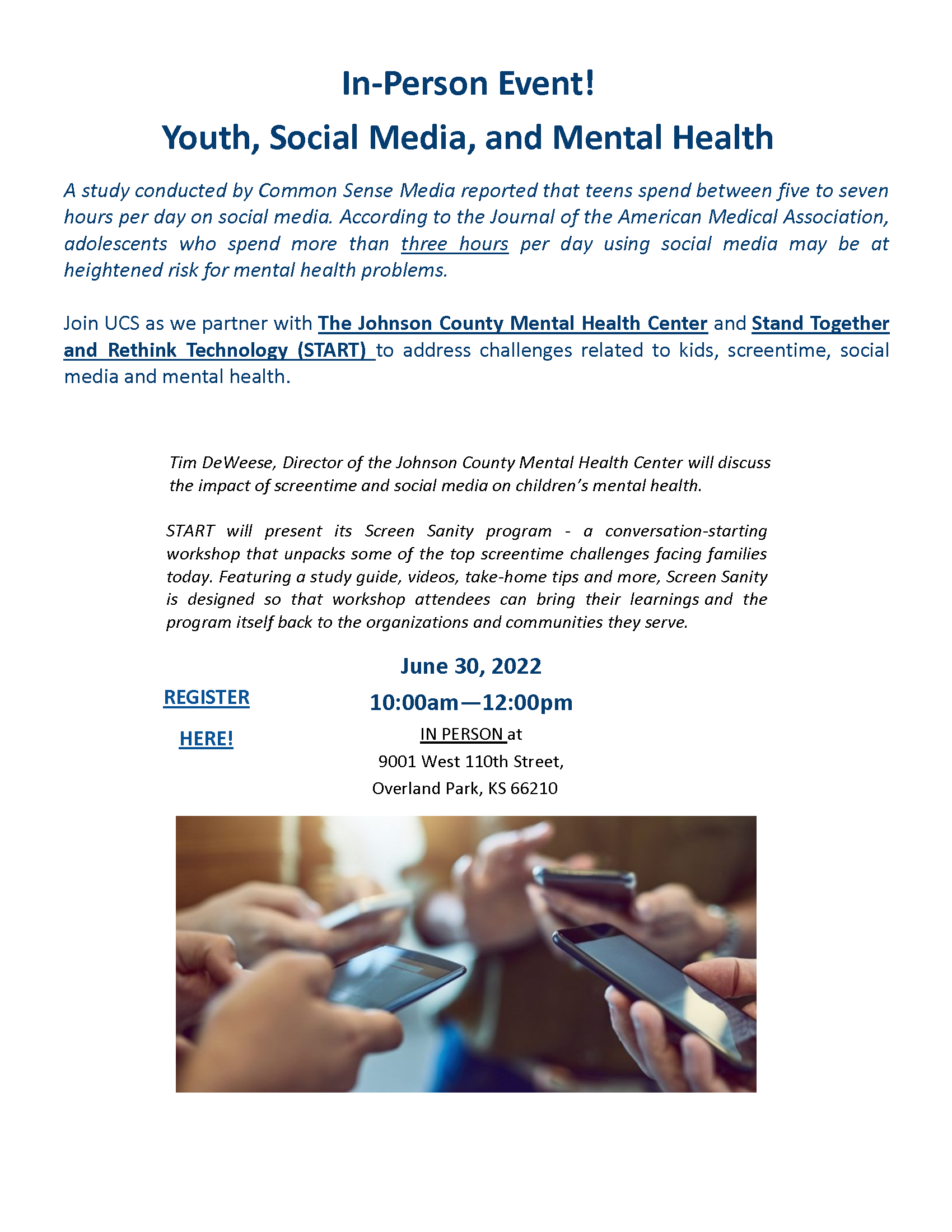2022 UCS Human Service Summit — Connecting Community, Creating Resilience
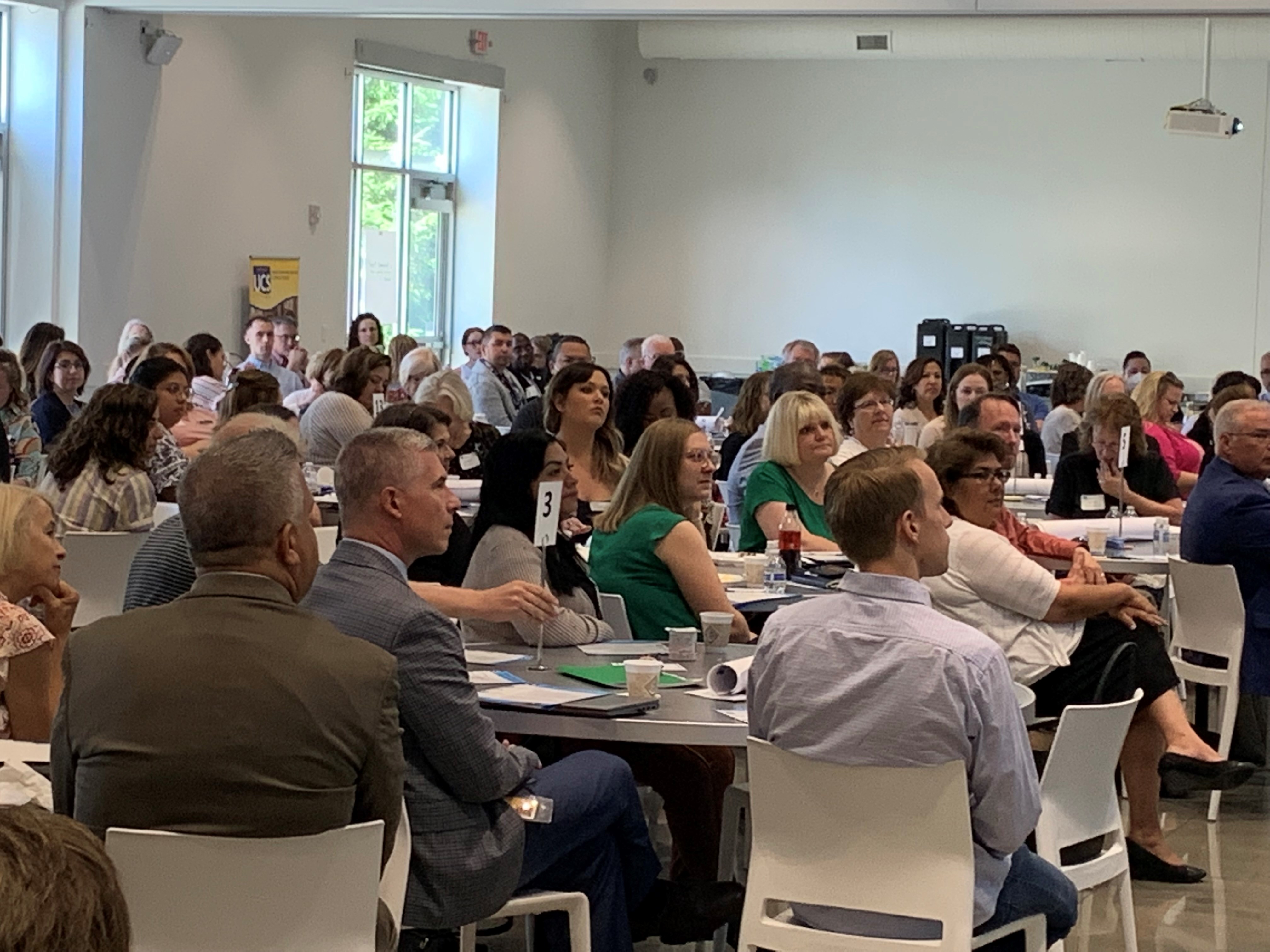 The UCS 2022 Human Service Summit hosted more than 150 attendees in-person for the first time since 2019. Leaders from various sectors of Johnson County came together to foster ideas about creating strong and resilient communities in the face of shared challenges. After assessing the impact of the pandemic, the need for connectedness is greater now than ever before.
The UCS 2022 Human Service Summit hosted more than 150 attendees in-person for the first time since 2019. Leaders from various sectors of Johnson County came together to foster ideas about creating strong and resilient communities in the face of shared challenges. After assessing the impact of the pandemic, the need for connectedness is greater now than ever before.
The event kicked off with a UCS presentation from Kristy Baughman, Director of Education and Planning, and Kathryn Evans, Manager of Special Projects, who demonstrated the importance of creating strong communities by analyzing survey data. They noted that nationally, older residents fare the best when it comes to neighborhood connectedness and maintaining strong social support often due to decades spent living in the same neighborhood. They also demonstrated that people in all kinds of communities desire to live in racially and ethnically diverse areas, and pointed out the growing diversity of Johnson County where the population of color has grown by more than 50% since 2010. Attendees were challenged to find small ways to connect with others in their communities through acts of kindness and through a new project: “One Small Step.” UCS invites Johnson County residents to sign up for our “One Small Step” initiative in which strangers with different beliefs share a 50-minute conversation about their lives to bridge divides created by political differences. Click here for the Summit Presentation Materials and Program.
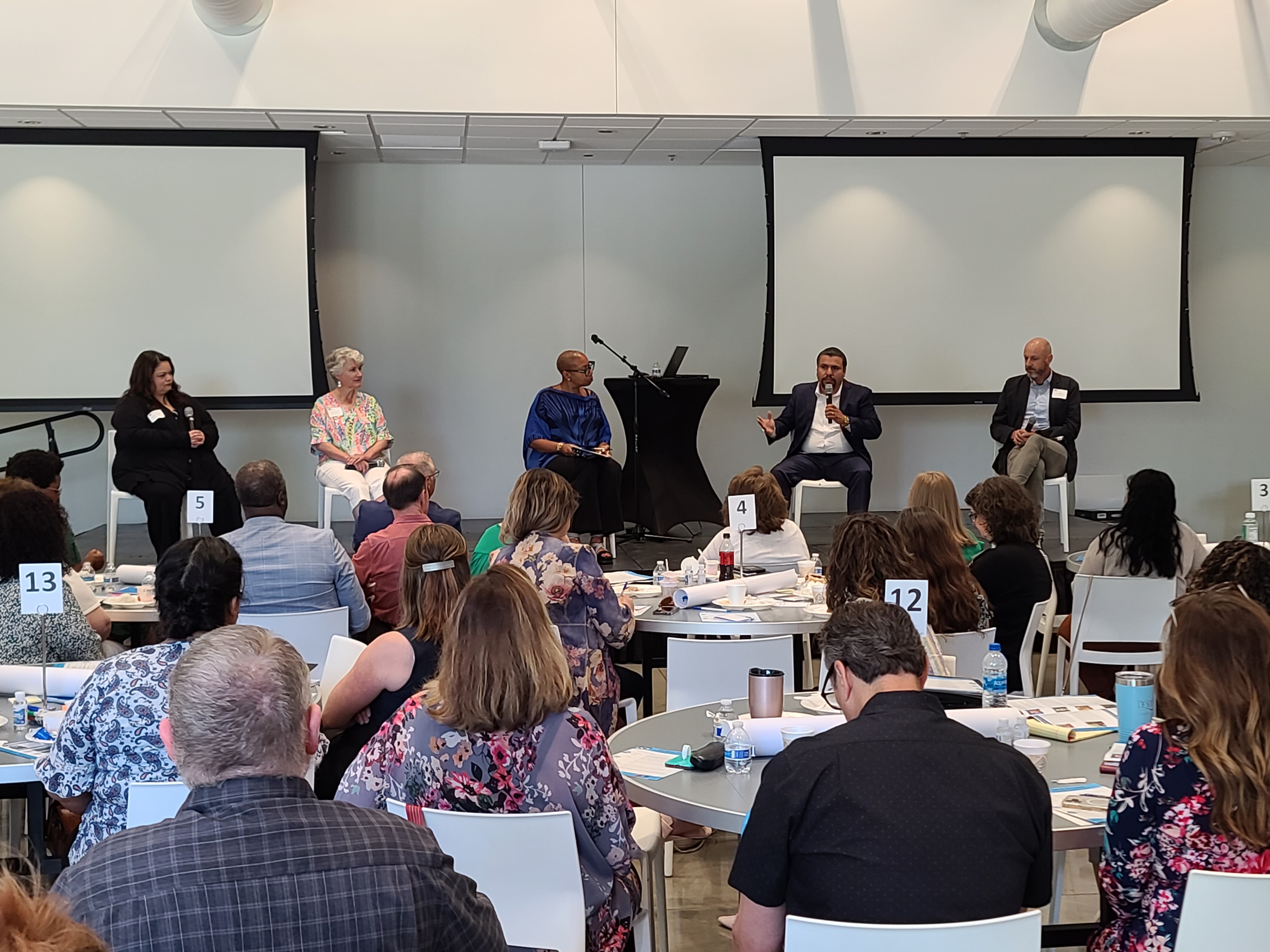 In partnership with American Public Square, the Summit hosted a discussion of multi-sector panelists who were intentionally selected for their roles in fostering community connectedness. Moderated by Denesha Snell, Director of Programs at American Public Square, panelists included:
In partnership with American Public Square, the Summit hosted a discussion of multi-sector panelists who were intentionally selected for their roles in fostering community connectedness. Moderated by Denesha Snell, Director of Programs at American Public Square, panelists included:
- Erik Erazo, Executive Director of Diversity and Engagement, Olathe Public Schools
- Andrea Generaux, Executive Director, Livable Neighborhoods Task Force, Wyandotte County
- Colette Panchot, Secretary of the Board of Overland Park’s Neighborhood Executive Committee, and Chair of the Beverly Estates Steering Committee
- Tim Suttle, Lead Pastor of Redemption Church, and Co-Vice President of the Good Faith Network. You can read more about Tim’s story below!
Several themes emerged from the discussion including the power of creating change at an individual level. They explained the value of fostering collaboration across sectors and building bridges between people to achieve shared goals. In many of their experiences, they found that people are more likely to trust and support initiatives they had a hand in creating. They placed great emphasis on the value of being a community driven leader and working within systems that already exist to create lasting change.
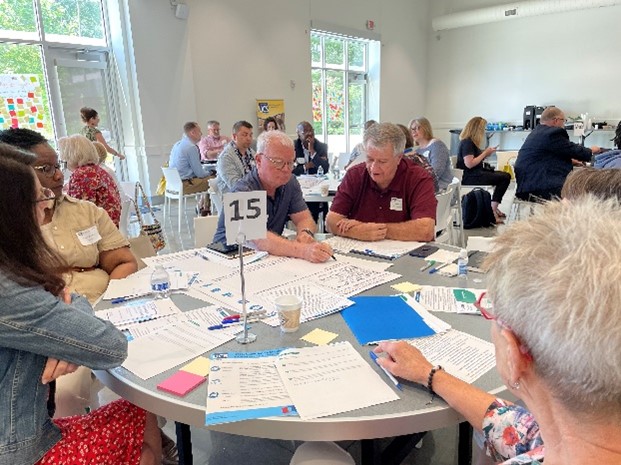 Following the panel, Tricia Maxfield, Civics Education Associate of American Public Square, led participants through a breakout session continuing the theme of connecting across differences. She explained that in an increasingly individualistic world, differences in opinion can often be barriers to strong, long-lasting personal connections. Participants were challenged to practice ambiguous, dialectical thinking to create better community dialogue. Each group was then tasked with having a difficult conversation on a sticky topic (such as: Should student debt be forgiven? What should lawmakers do about gun violence? How should parents teach their children about race/racism?) using this model of thinking. Although many experienced the difficulties of dialectical thinking at first, most found that listening with the intent of understanding rather than listening to respond was effective in creating a more civil conversation.
Following the panel, Tricia Maxfield, Civics Education Associate of American Public Square, led participants through a breakout session continuing the theme of connecting across differences. She explained that in an increasingly individualistic world, differences in opinion can often be barriers to strong, long-lasting personal connections. Participants were challenged to practice ambiguous, dialectical thinking to create better community dialogue. Each group was then tasked with having a difficult conversation on a sticky topic (such as: Should student debt be forgiven? What should lawmakers do about gun violence? How should parents teach their children about race/racism?) using this model of thinking. Although many experienced the difficulties of dialectical thinking at first, most found that listening with the intent of understanding rather than listening to respond was effective in creating a more civil conversation.
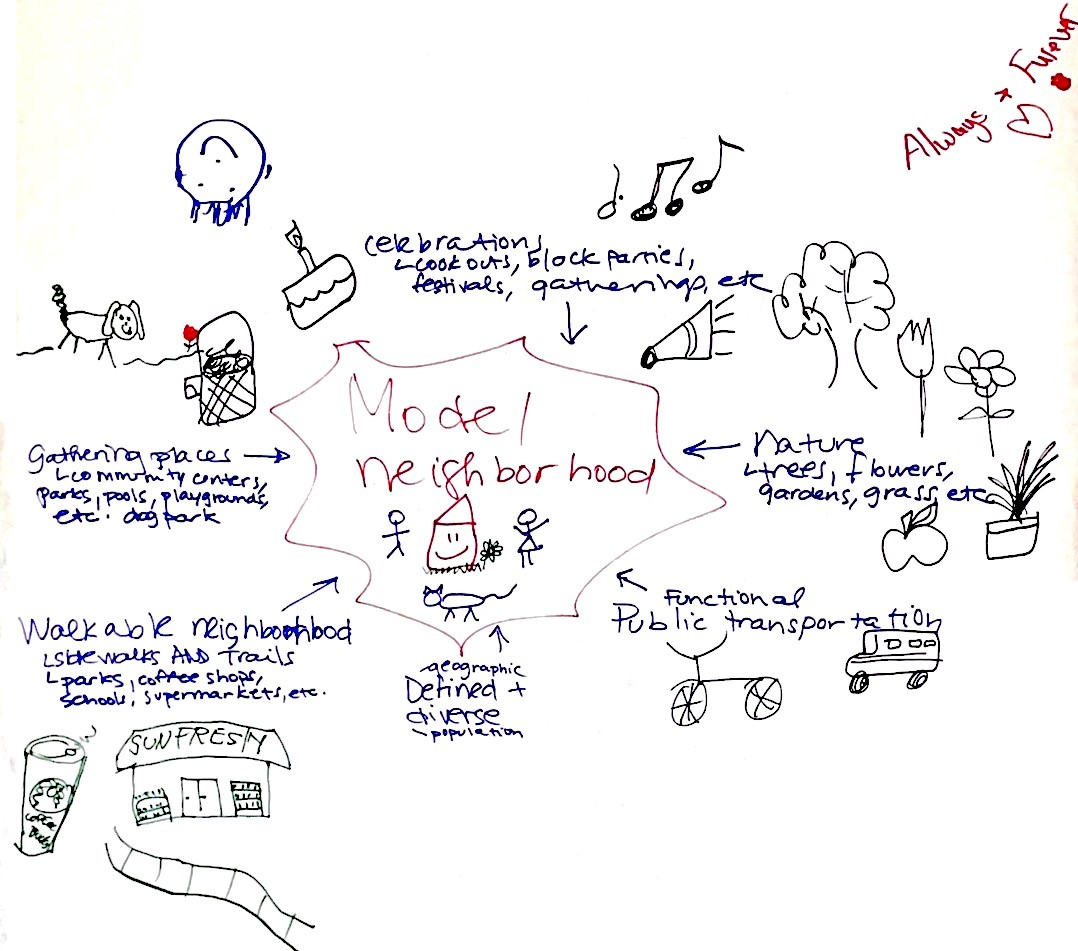 In the end, participants identified qualities of a good neighbor and qualities that contribute to a strong neighborhood. Many explained that they believe in the power of meaningful interactions and getting to know “who” someone is rather than what their role is in the community. Simplicity is key; the most discussed quality of good neighbors was friendliness and being welcoming toward others. Strong and connected communities are a vital part of Johnson County health and contribute to our shared resiliency every step of the way.
In the end, participants identified qualities of a good neighbor and qualities that contribute to a strong neighborhood. Many explained that they believe in the power of meaningful interactions and getting to know “who” someone is rather than what their role is in the community. Simplicity is key; the most discussed quality of good neighbors was friendliness and being welcoming toward others. Strong and connected communities are a vital part of Johnson County health and contribute to our shared resiliency every step of the way.
UCS appreciates the strong participation from Summit attendees and would like to thank American Public Square for their partnership in this event. Many thanks to this year’s Summit sponsors: Marshaun Butler, Tom Herzog, Lindsey Family Fund, Fred & Carol Logan, Charles & Angela Sunderland, Maury & Angie Thompson, Johnson County Community College, MARC, REACH Healthcare Foundation and United Way of Greater Kansas City.
Faith Communities Work Towards Long-Lasting Collaborations
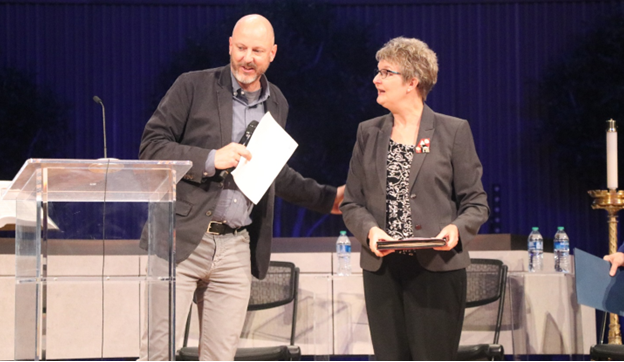
Pastor Tim Suttle talks with Johnson County Commissioner Janeé Hanzlick during the Good Faith Network’s Nehemiah Conference, held May 3, 2022, at the United Methodist Church of the Resurrection in Leawood. (Photo Credit: David Burke, Great Plains United Methodist Conference)
By Mike Sherry, OnPoint Communications
Leaders of a newly formed interfaith group in Johnson County put a simple — yet powerful — question to their congregants a year ago as they developed their initial policy agenda.
“We just said, ‘What are the problems of justice that keep you up at night?,’ and then we just listened and kept on talking,” said Tim Suttle, senior pastor of Olathe’s Redemption Church, who is co-vice president of the new group, called the Good Faith Network.
The 20 member congregations held dozens of small-group meetings, involving approximately 500 participants, and in a winnowing process last fall, the Good Faith Network chose to advocate for solutions to homelessness and untreated mental illness.
“We are trying to raise awareness to the fact that not everyone in Johnson County has been cut in on the good life we have here … so we are responsible for how things work for them and for the system we build as we organize our common life together,” said Suttle, 53.
Among the solutions the network is advocating for Johnson County government leaders to put in place are the establishment of a year-round emergency homeless shelter and implementation of a mental health crisis-care system that can serve as a better alternative than emergency rooms or jails.
The network estimates its congregations have more than 25,000 members combined, and more than 1,300 people attended the network’s first Nehemiah Assembly, held in May at the United Methodist Church of the Resurrection in Leawood.
Suttle has increased his connectedness through the Good Faith Network, he said, by crossing “all kinds of boundaries that I was not crossing before” through introductions to service providers and others.
In addition, Suttle plans on having his other co-vice president, Rabbi David Glickman of Congregation Beth Shalom, come speak to his congregation about the Old Testament book of Leviticus.
Suttle also intends to take up the offer of a tour from the Islamic Center of Johnson County.
“I am going to take my whole staff over there and see what we can learn about how our Christianity looks to them,” Suttle said, “It is that crossing borders thing that is just so powerful.”
The network as a whole, he said, has a three-pronged strategy of strengthening relationships between congregations, forging bonds between the faith community and front-line agencies, and in the process “building relationships through our congregations with those on the margins.”
In explaining further, Suttle said: “Congregations are great at mercy. We can run the heck out of a food pantry or whatever. We are not very good at justice. It is interfacing with the powers, with policies. It requires a whole level of expertise we don’t generally have, and so we have banded together to create a voice for justice.”
The intent is to be forceful but collaborative.
“That is part of why we chose (the name) Good Faith Network,” Suttle said, “because we want to work in good faith with our marginalized neighbors, but also with our leaders. We want to build a long-term relationship where we work together.”
Youth, Social Media, and Mental Health event on June 30
The Kansas Homeowner Assistance Fund (KHAF) Program is Open for Applications!
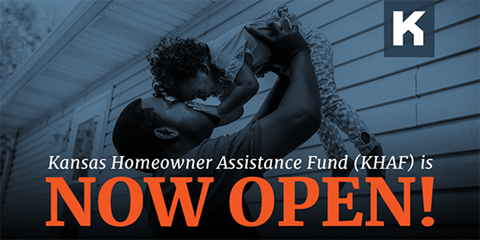
Don’t wait, apply today! Funds are limited.
The Kansas Homeowner’s Assistance Fund (KHAF) program’s goal is to aid homeowners in avoiding foreclosure by assisting with homeownership related expenses.
Applicants must be at least 30 days past due on their mortgage or property taxes/charges to qualify for assistance types.
For application assistance - KHAF Call Center at 855-307-KHAF (5423) or complete the KHAF Contact Us Form.
Qualifications
- The household gross income must not be more than 150 percent (150%) of the area median income (AMI) for the County in which the property is located or 100% US Median Income. See KHAF Income Chart.
- The property must be located within the state of Kansas.
- The property must be the applicant’s primary residence.
- The applicant must be the owner of the property.
- Applicants must be at least 30 days past due on their mortgage or property taxes/charges to qualify for assistance types.
- There must be a pandemic-related financial hardship after January 21, 2021 (loss of income or increase in expenses).
- Original mortgage amount must be within conforming loan limits.
Eligible Properties
- Owner Occupied, Primary Residences (second homes and investment properties are not eligible for assistance).
- Single Family Residences, One to Four Unit Dwellings, Condos, Manufactured Homes (affixed and unaffixed) and Townhomes.
Assistance Terms
- $45,000 Max Assistance Amount (this is a combination of up to $35,000 in mortgage reinstatement and payment assistance plus up to $10,000 in property charges and utility/internet/broadband assistance) provided as a grant up to $25,000 and a two-year forgivable loan for mortgage related assistance more than $25,000.
Assistance Types
Mortgage Reinstatement Assistance
- Mortgage must be past due by at least 30 days.
- Assistance up to $35,000.
- Reinstatement assistance must bring the mortgage current by curing all past-due amounts.
- This assistance covers past due primary mortgage, second mortgages, reverse mortgages, and even non-traditional loans such as land contracts (contract for deed) or manufactured homes.
Mortgage Payment Assistance
- Must have current mortgage delinquency.
- Combined assistance (including reinstatement) up to $35,000.
- Up to six (6) months of forward payment assistance paid directly to mortgage servicer.
Property Charges Assistance
- Property charges and/or taxes must be past due by at least 30 days.
- Assistance up to $10,000 maximum (inclusive of utility/internet/broadband assistance when applicable).
- This assistance covers past due property charges including property taxes, insurance premiums (including homeowner’s insurance and flood insurance), homeowner association fees, condominium association fees, cooperative maintenance, and common charges.
Utility/Internet/Broadband Assistance
- Must have mortgage or property tax/charge delinquency to qualify.
- Assistance up to $10,000 maximum (inclusive of property charges assistance when applicable).
- This assistance covers past due electricity, water, wastewater, gas, home energy, internet, and broadband.
How do I Start?
- To apply for assistance, register for your online account and complete an on-line application.
For questions, please contact the KHAF Call Center at 855-307-KHAF (5423) or complete the KHAF Contact Us Form.


